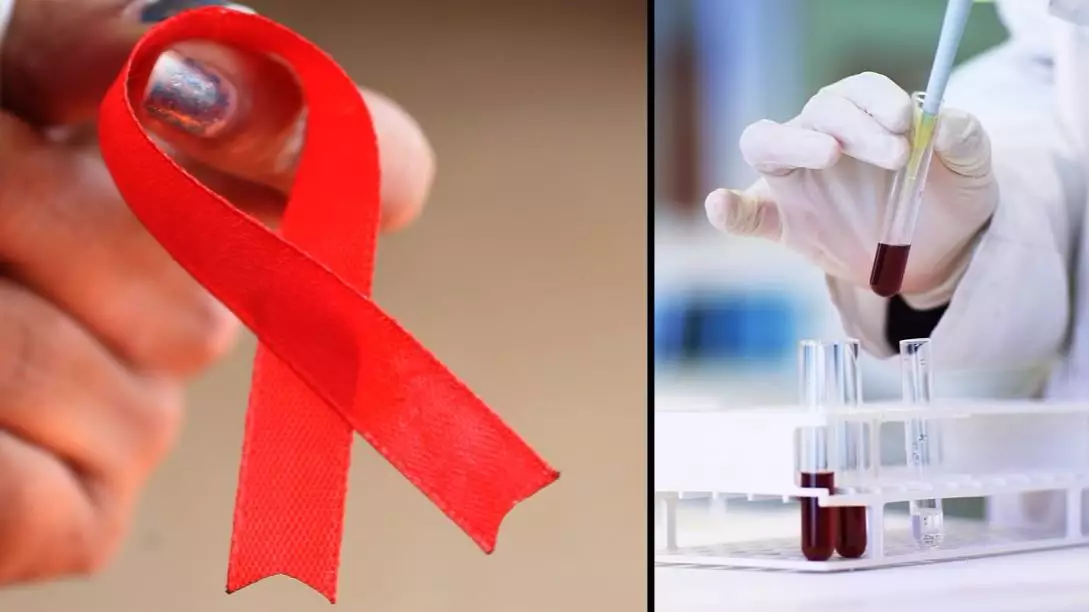
A South Africa child who was infected with HIV at birth and given a short course of treatment has stayed healthy for the last nine years without further drugs, according to scientists at a conference in Paris.
Researchers say they hope to learn from the case to save others from having to take daily medication to treat their illness.
The girl, who researchers did not identify, started on HIV drugs when she was two months old and stopped 40 weeks later. When she was later tested by researchers, they found that the virus was undetectable in the girl's blood and it has remained so since.
"Further study is needed to learn how to induce long-term HIV remission in infected babies," said Anthony S Fauci, director of the National Institute of Allergy and Infectious Diseases (NIAID), which funded the study.
"However, this new case strengthens our hope that by treating HIV-infected children for a brief period beginning in infancy, we may be able to spare them the burden of lifelong therapy and the health consequences of long-term immune activation typically associated with HIV disease."

Credit: PA
The trial in 2007 studied infants infected with HIV at birth. The children were randomly assigned either to just 40 weeks of antiretroviral drugs or else to 96 weeks. The child was one of 143 babies that received the shorter course.
Avy Violari, from the Perinatal HIV Research Unit of the University of the Witwatersrand in Johannesburg, who presented the case study to the International Aids Society conference, said: "To our knowledge, this is the first reported case of sustained control of HIV in a child enrolled in a randomised trial of ART [antiretroviral therapy] interruption following treatment early in infancy."
The scientists confirmed that the South African child does not have the genetic profile of the rare individuals who have not become infected with HIV after being exposed to it. However, researchers believe something besides the early drug treatment may have contributed to the virus remaining at undetectable levels.
"By further studying the child, we may expand our understanding of how the immune system controls HIV replication," said Caroline Tiemessen from the National Institute of Communicable Diseases (NICD) in Johannesburg.
LADbible has previously reported on the stigma that still exists around HIV in the UK. Despite advances being made in the treatment of the virus, there remains no cure.
Advert
There are currently more than 100,000 individuals in the UK with HIV. Being diagnosed with HIV means making lifestyle changes, but the condition is no longer a 'death sentence' and can now be managed with a number of drugs that allow those affected by the condition to have similar life expectancies to those who are not living with it.
For World AIDs Day, LADbible spoke last year with John John, a 42-year-old man, who received his diagnosis along with his wife. He described how those living with the virus are often forced to live a 'secret live', as sufferers are often the victim of hate crimes .
"Me and my wife have been really unlucky, we haven't done anything wrong. I'm sure there are lots of people out there - including straight men like me - who are dealing with it alone, because they're too scared to say anything," John told us.

A vigil is held for people who died from HIV. Credit: PA
Advert
"The town where we live is like any town up and down the country, and as much as we hope people will be understanding, we know there are people who won't be. Whereas if I got told I had diabetes or epilepsy, I could tell the world, I still feel as though I couldn't tell my next door neighbour, because I don't know how they might react."
It is hoped that the breakthrough may eventually mean a better quality of life for John and the other 36.7 million people living with HIV across the world.
Featured Image Credit: PA / Creative Commons